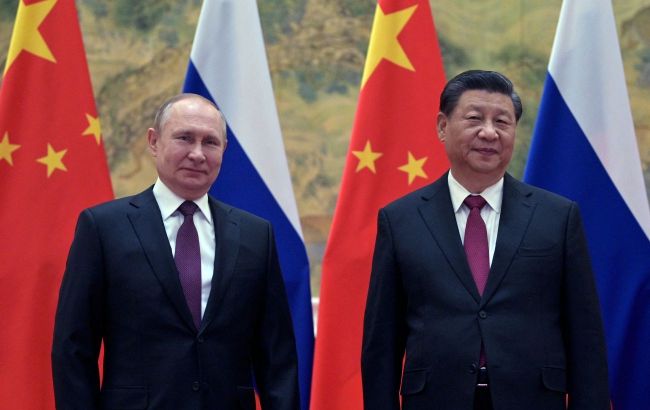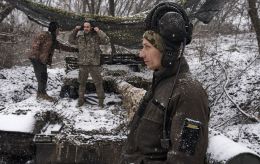Chinese pressure: Russia urged to finance Power of Siberia-2 gas pipeline alone
 Illustrative photo: Russian dictator Vladimir Putin and Chinese leader Xi Jinping (Getty Images)
Illustrative photo: Russian dictator Vladimir Putin and Chinese leader Xi Jinping (Getty Images)
The negotiations between Russia and China on the construction of the Power of Siberia-2 gas pipeline are progressing slower than expected. This is linked to Beijing's desire to leverage its strong negotiating position and the pressure on Moscow regarding the project's financing, according to the South China Morning Post newspaper.
Despite the previously stated "infinite" strategic partnership between Russia and China, the extension of the pipeline is progressing slower than expected, according to Chinese analysts and Russian sources cited by the publication.
Experts familiar with the issue told journalists that Beijing was keenly aware of its negotiating power, being in a much stronger position.
"It’s a specific presidential-level of pressure. It’s about cheaper payment. They can demand deep discounts," a source informed the media.
It's also noted that Russian leader Vladimir Putin is under "enormous pressure" regarding the pipeline construction; otherwise, a "huge amount of gas" would be wasted, resulting in financial losses for Russia.
"In terms of construction, [Beijing] wants to make sure that they have no risks and no costs. Russia is the side that foots the entire bill," a source told the newspaper.
The Power of Siberia-2 project
Earlier, the Kremlin leader promised to export at least 98 billion cubic meters of gas annually from Russia to China. Upon completion, the pipeline will redirect 50 billion cubic meters of natural gas annually to northern China, previously supplied to Europe.
Due to international sanctions imposed on Russia in response to its extensive military aggression against Ukraine, the supply of Russian blue fuel to Europe was blocked.
Who benefits from the project?
According to Li Lifan, a Russia and Central Asia specialist at the Shanghai Academy of Social Sciences, the proposed pipeline will primarily benefit Russia as it is shorter, and the construction cost will be lower.
The expert also points out that China insisted on building the pipeline through the Altay prefecture in the Xinjiang Uygur autonomous region because it wouldn't pass through Mongolia.
Construction plans
In October, Russian Deputy Prime Minister Viktoria Abramchenko, during a visit to the Mongolian capital Ulaanbaatar, assured that the technical and economic justification for Power of Siberia-2 was completed, and the project design work would be finished by the end of this year.
According to her estimates, the construction of Power of Siberia-2 could start after the approval of project work in the first quarter of 2024.
It is expected to take 6 years.
Earlier in May, it was reported that China was accelerating the construction of a Central Asian pipeline to obtain gas from Turkmenistan, despite Russia's proposal for another pipeline, the Power of Siberia-2.

